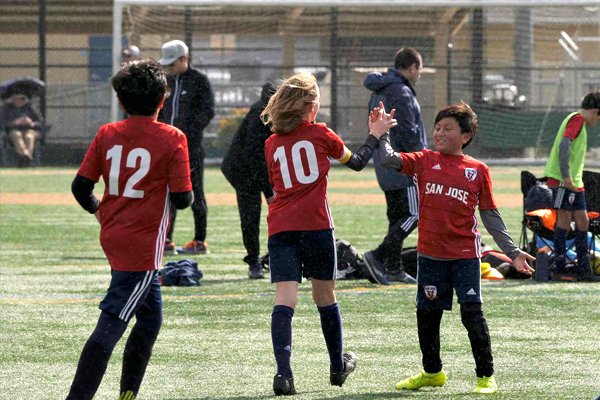Unlocking the Power of Mental Skills
Photo by Mihai Manolescu (Dynamos 2011B)
Youth soccer and sports, in general, are often celebrated for their ability to foster physical development, teamwork, and friendly competition. The pivotal role that physical training plays in an athlete's growth is undeniable, but there's an equally essential component that often gets overlooked – mental skills. We've all heard the phrase, "It's 10% physical and 90% mental," but how often do we actively train for that 90%?
The Mental Side of Sports
Athletes of all ages frequently face high-pressure situations. Whether it's a penalty kick in the final minutes of a soccer game or a crucial free throw on the basketball court, the mental aspect can make or break the outcome. But what percentage do you believe sports require mental skills? It may come as a surprise to some, but experts suggest that as much as 70-90% of athletic performance depends on the athlete's mental state.
So why don't we train for that substantial percentage as rigorously as we do for the physical aspect? Often, it's because the mental side of sports is less tangible, harder to measure, and sometimes underestimated. However, it's high time we recognize its importance and make a conscious effort to harness the potential it holds.
Developing Mental Skills
Incorporating mental skills development into youth sports can lead to improved performance, better emotional resilience, and more profound personal growth. Here are some key strategies for nurturing these skills:
Goal Setting:
Begin by helping young athletes set both short-term and long-term goals. These should be specific, measurable, and achievable, but also challenging. Encourage them to focus not just on outcomes (like winning a game) but also on personal growth and skill development.
Visualization:
Visualization techniques can be highly effective. Athletes can mentally rehearse their skills, imagine successful plays, and envision themselves coping with high-pressure situations. Visualization helps build confidence and reduces anxiety.
Self-Talk:
Teach athletes to manage their self-talk, replacing negative and self-critical thoughts with positive and empowering ones. The way we speak to ourselves can significantly impact our performance and emotional well-being.
Focus and Concentration:
Drills that improve concentration and focus are essential. Developing mindfulness through techniques like meditation and deep breathing can help athletes stay in the present moment during games, avoiding distractions and anxiety.
Pre-Game Routine:
Establishing a pre-game routine is a great way to prepare mentally and physically for peak athletic performance. Here's a step-by-step guide on how to create one:
Visualize Success: Start your routine by spending a few minutes visualizing a successful performance. Imagine yourself making precise passes, scoring goals, or executing exceptional plays. This positive imagery helps build confidence and sets a constructive tone for the game.
Relaxation Techniques (Competitive and Recreational): Incorporate relaxation techniques like deep breathing exercises. Focus on taking slow, deep breaths to calm your mind and body. This can alleviate pre-game jitters and improve focus.
Goal Setting: Review your individual goals for the game. Remind yourself of what you're looking to achieve and the specific skills you want to showcase. This mental rehearsal can sharpen your focus and commitment to those objectives.
Positive Self-Talk: Engage in positive self-talk. Replace any self-doubt or negative thoughts with empowering and encouraging words. Reiterate your strengths and affirm that you are well-prepared for the game.
Physical Warm-Up: Execute a physical warm-up that includes dynamic stretches and exercises. A warm body can help maintain your mental focus and agility during the game.
Review Game Plan: Take a moment to review the team's objectives and tactics with your coach. Understanding your role and the broader strategy enhances your game awareness and readiness.
Music or Rituals: Some athletes find that listening to a specific song or engaging in a personal ritual can help them get into the right mindset. Find what works for you and incorporate it into your pre-game routine.
Incorporating these mental skills into a pre-game routine can help athletes reach their full potential on the field. By training both body and mind, we enable young athletes to face challenges with greater resilience and unlock their full athletic capabilities.
At CVSJ, we recognize that nurturing the mental side of youth soccer is about preparing athletes for success in sports and life. With mental skills training, we can equip them with the tools to face challenges with resilience and unlock their full athletic capabilities.

